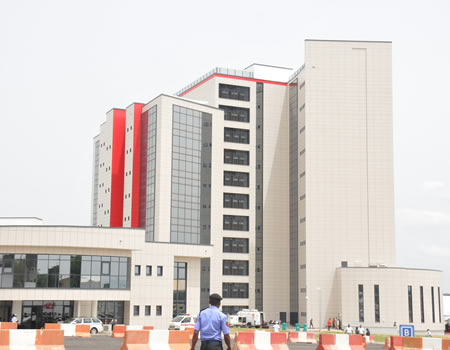News
EFCC may gain power to prosecute military officers as Senate committee moves to amend act

In a bold move to strengthen the fight against corruption, the Senate Committee on Anti-Corruption and Financial Crimes has vowed to amend the Economic and Financial Crimes Commission (EFCC) Act.
This amendment aims to empower the EFCC to investigate and prosecute military officers implicated in corruption and financial crimes.
Emmanuel Udende, chairman of the committee, emphasized the need for legislative action during an oversight visit to the EFCC headquarters in Abuja, on Monday.
“There are challenges that they have. Some of the challenges will be sorted by legislation. It is only legislation that can solve some of these challenges,” he stated.
One major hurdle the EFCC faces is the limitation imposed by court rulings that prohibit the investigation and prosecution of military officers unless they are tried through a court-martial. Udende deemed this “runs counter to the EFCC Act” and expressed the committee’s determination to address this issue through amendment.
Read Also: Arewa Group urges military action against Lakurawa terror group
“There are challenges that they have. Some of the challenges will be sorted by legislation. It is only legislation that can solve some of these challenges,” the lawmaker said.
“The situation where a court rules that a military man cannot be investigated and prosecuted unless he goes to a court-martial, we think, runs counter to the EFCC Act.
“We would do that by amendment of the EFCC law itself so that they will have the powers to do the investigation and do the prosecution.”
The committee also plans to secure an increase in the EFCC’s annual budget, acknowledging the commission’s achievements under Ola Olukoyede’s leadership.
Olukoyede, EFCC chairman, highlighted the need for a substantial budget increase for 2025 operations. “I don’t need less than 300 percent of the last year’s budget you approved for me to work this year,” he emphasized.
Specifically, Olukoyede cited the necessity of procuring software to investigate cryptocurrency trading, estimated at N3.4 billion.
The EFCC chairman revealed that unlicensed cryptocurrency trading in Nigeria results in significant losses, amounting to billions of dollars. Collaborations with the Securities and Exchange Commission (SEC) and Central Bank of Nigeria (CBN) have yielded regulations to curb this issue. Effective enforcement, however, hinges on acquiring the necessary software.
By granting the EFCC greater autonomy and resources, the Senate Committee aims to fortify Nigeria’s anti-corruption efforts, ensuring that no individual, regardless of position, is above the law.
Join the conversation
Support Ripples Nigeria, hold up solutions journalism
Balanced, fearless journalism driven by data comes at huge financial costs.
As a media platform, we hold leadership accountable and will not trade the right to press freedom and free speech for a piece of cake.
If you like what we do, and are ready to uphold solutions journalism, kindly donate to the Ripples Nigeria cause.
Your support would help to ensure that citizens and institutions continue to have free access to credible and reliable information for societal development.




























